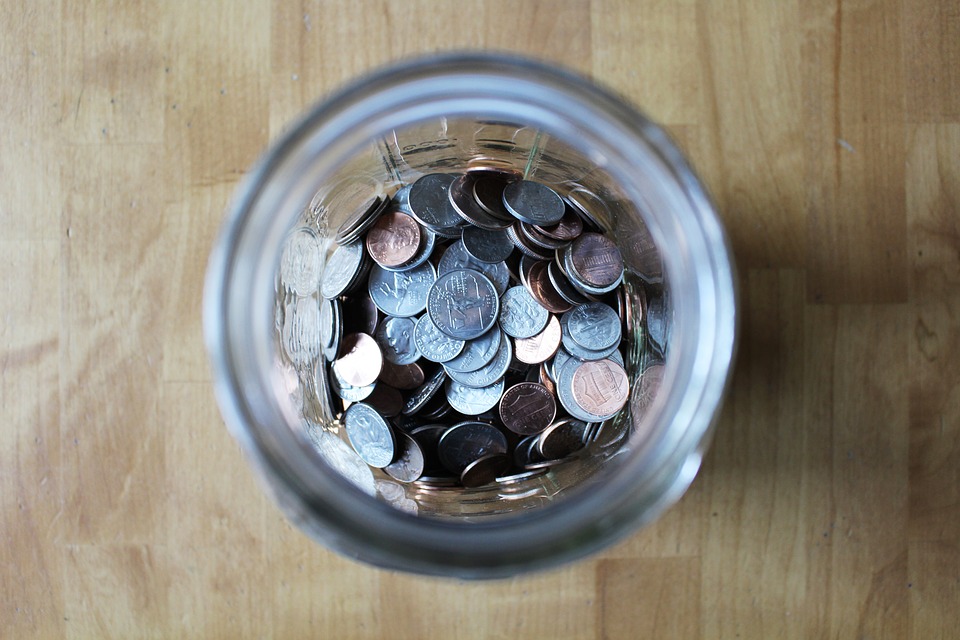The Fundamentals Of Saving Money- It’s All About Mindset
 Let’s face it, everything is so expensive now. Whether you are renovating your home, or you are just trying to live month to month, the feeling that there is more money goes out than coming in certainly resonates with a lot of people. From struggling families to the younger millennials who have just finished college, it seems that no stone is unturned when it comes to financial problems. But where are we going wrong? Is it the fact that we just don’t earn enough to get by, or is it something more deep-rooted than that? While mindset is everything when it comes to accomplishing a task, you might think that it’s pretty useless when trying to save money. But in fact, your mindset and attitude are incredibly vital to save money and to live a lifestyle that is comfortable. So, with that in mind, what are the best ways to get into a money-saving mindset?
Let’s face it, everything is so expensive now. Whether you are renovating your home, or you are just trying to live month to month, the feeling that there is more money goes out than coming in certainly resonates with a lot of people. From struggling families to the younger millennials who have just finished college, it seems that no stone is unturned when it comes to financial problems. But where are we going wrong? Is it the fact that we just don’t earn enough to get by, or is it something more deep-rooted than that? While mindset is everything when it comes to accomplishing a task, you might think that it’s pretty useless when trying to save money. But in fact, your mindset and attitude are incredibly vital to save money and to live a lifestyle that is comfortable. So, with that in mind, what are the best ways to get into a money-saving mindset?
Be Prepared For Change
This is probably the most extreme shock to the system. We all think that we live within our means when in actual fact, we seldom do. It’s not hard to go out of your debt far as money is concerned, especially when you are used to a certain lifestyle. But, turning yourself into a money saving machine begins at the point where you are ready to say to yourself “okay, I’m ready to sacrifice.” And as extreme as this sounds, you need to make some sacrifices for the greater good, especially if you’ve got family members that depend on you. You might think that you are making enough sacrifices in a financial sense already, but if your bank balance is stating otherwise, it’s time to tighten your belts even further. Being prepared for change and accepting there will be bumps in the road is vital to changing your money-saving mindset.
Take Time To Look At Your Habits
This is where you will get an extreme shock to the system. Because we all believe we live within our means already, it’s now time to take the magnifying glass and look at every penny we spend. We do this by examining every aspect of our money spending. The best place to begin is with our bank statements. The best attitude to have is to pretend that it’s someone else’s bank statement. You will look at the last 12 months, and see how much is going on everything. From your utilities to your nights out, to your shopping. When lenders look at whether they should provide money for someone to have a mortgage, they take this approach and go through bank statements with a fine tooth comb to see if there are any spending patterns that make them look unreliable. Being impartial is difficult when it’s your own money, but to go through your statements and see if there are non-essential purchases that occur every so often, you can begin to get a clear picture of how you spend money.
Making The Change
The next step is to see what regular spending habits you have that isn’t essential. A very good example is if you go to work every day and get a coffee en route. It’s harmless enough to pick something up on the way into the office, but if you do this every day, the amount soon adds up. Paying $2 for a small coffee in the morning adds up to $10 a week. If you work roughly 48 weeks a year, you’ve spent $480 on coffee alone! Now, not to say you should give up your essential cup of Joe in the morning, but are there cheaper alternatives? Instead of buying coffee, is it cheaper to make your own at home, and take it in a travel mug? When you think about the cost of this one cup of coffee, you’ve made a major saving already on just one item. And part of it is this simple, but it’s important to remember that it’s difficult at the outset, because you are creating new habits. A habit can take, at the very minimum, 18 days to form. But if you’ve been buying coffee every morning on the way into the office for as long as you can remember, it may take a bit longer than that. But the great thing is, as soon as a habit is formed, it becomes automatic. The most difficult bit is this period of time when you’re making changes, but it is worth it in the long run.
Taking The Time To Research
Another way to tackle your money habits is to look at the outgoings you have that are essential. Credit card bills and utility bills need to be paid, but are you paying over the odds for something that you could get cheaper somewhere else? If you’re looking for the best credit cards to apply for, or the best gas and electric suppliers, a lot of the money saving mindset is about doing sufficient research. A lot of us don’t feel we have the time to do it, but much like forming a habit in your day to day life, finding a cheaper energy supplier or credit card with lower interest rates doesn’t require that much effort. Instead, you can go online and find so many resources to help you along the way. We blame our inability to look for cheaper tariffs on our essentials on a lack of time. The best solution is to make time. It’s a little bit of effort for a lot of savings. If you can halve your credit card bill every month by switching to a better one, or by changing utility supplier, it’s just common sense to get online.
Start To Develop New Mindsets
Once you’ve got a comprehensive idea of how much you spend, and have made appropriate steps to fix these bad habits, developing a new mindset when it comes to your own finances is a lot easier. Developing a new mindset when it comes to spending money means treating your finances with appropriate respect. In other words, don’t think you have a disposable income. It goes back to the idea of having habits put in place, so it becomes automatic. There are people who are hard-wired to look for bargains, and if you are someone who is not, this one simple habit to acquire can save up a lot of cash, enough to put towards a vacation. If you haven’t had a vacation in a long time, because of a lack of money, this could be a suitable goal that you can work towards. This gives you focus and dedication so you will work hard at saving money. But, if you don’t have a goal, it can feel pretty aimless if you’re saving money just for the hell of it. It’s at this point you could easily fall back into your old habits. Instead, it’s time to have an understanding of the bigger picture and your attitude towards money. Once you understand your own attitudes towards money making decisions, you can establish appropriate habits, and create a budget alongside this. That dreaded word, budget, can send most of us into a frenzy. It implies that we aren’t going to enjoy ourselves ever again. In actual fact, it can be freeing because you have developed a money saving habit where you live within your means, so sticking to this budget becomes automatic. There are other ways to take this pressure off your mind, such as automating specific payments, so you don’t need to keep track of them. But once you’ve optimized your entire way of spending, especially on the essentials, and you’ve been able to make everything as manageable as possible, you don’t tend to think about money in the same way. The final piece of the puzzle is if you are used to spending a lot of money on frivolous purchases. For a lot of us, we have the sense to rein it in when we see our credit card bill, but for others, it can take a lot of soul-searching to see why you were doing this in the first place. For example, and do you compare yourself to your friends who have a lot of money? If so, then it’s going to backfire on you in the end. No one ever has smooth sailing when it comes to finances but you need to focus on your own money, not someone else’s.
Developing a money-saving mindset isn’t an overnight job. It is something that can take a lot of time, effort, and struggle. We all suffer at the hands of late payment penalties or have considerable financial anxieties from time to time. But, a lot of this we blame on the fact that we don’t earn enough money. Instead, it’s about knowing how to live within your means. This idea of a money-saving mindset requires a lot of willpower on your part, but once these habits have become ingrained, these will stick with you for life. These are the essentials to getting into a money-saving mindset, and while it’s difficult at the outset, these changes will free you up in so many ways, not just in your finances.

